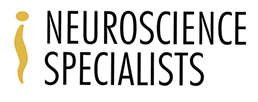
What is a Degenerative Spinal Condition?
A degenerative condition is a continuous deterioration of a tissue or an organ in your body over time.
Degenerative spinal conditionsrefer to a gradual loss of normal structure and/or function of the spine over time.
How do Degenerative Spinal Conditions Affect You?
A degenerated spine can lead to several medical problems. They include but are not limited to:
- Slipped or herniated discs
- The spinal discs collapse, dry out and lose the ability to cushion the joints
- The condition normally occurs in the lower part of the spine
- Stenosis
- Stenosis involves the narrowing of your spinal canal
- The condition leads to compression of the spinal cord or nerve roots
- Sciatica
- Sciatica is the pain affecting your back, hip, and outer side of the legs
- It originates in your lower back and shoots down through your legs and feet
- Compression of spinal nerve roots due to degenerating discs causes sciatica
- Myelopathy
- This is caused by spinal cord compression
- Weakness or numbness in the spinal cord is the typical symptom
- Myelopathy reduces the spinal cord’s ability to send signals between the brain and body
- Radiculopathy (pinched nerve)
- This occurs due to the compression of nerve roots caused by herniated discs
- Reduces the root’s ability to send signals between the spinal cord and body
- Osteoarthritis
- Osteoarthritis is a result of the breakdown of the cartilage at the spinal joints
- The condition causes pain and stiffness in your back
Causes of Degenerative Spinal Conditions
Age-related wear and tear is the main cause of degenerative spinal conditions. Other reasons can be:
- Mechanical (extreme bending or lifting)
- Spinal infections
- Traumatic spinal injury
- Spinal tumors or arthritis
- Overuse of the back (repeated strains, sprains)
- Gender (men are more prone)
- Nutritional or genetic factors
- Smoking
Symptoms
The symptoms of degenerative spinal conditions vary widely in their presentation and depend on the location that is affected in the spine. However, the most generic symptom is sharp or chronic back and/or neck pain with movement or at rest.
Other possible symptoms can be:
- Weakness or numbness in the spine
- Nerve weakness or loss of sensation
- Spinal deformity
- “Pins-and-needles” in your legs or arms
- Trouble in breathing or swallowing
- Unexplained weight loss
Complications of Degenerative Spinal Conditions
The major complications include:
- Spinal instability
- Nerve entrapment
- Muscle pain/spasms
- Arm or leg weakness
Diagnosis
Your doctor will usually diagnose the condition using any or all of the following tests:
- X-ray (plain films)
- Magnetic resonance imaging (MRI)
- Computed tomography (CT)
- Myelography/post-myelogram CT
- Electromyography (EMG)
- Discogram
Treatment
Treatment of a degenerating spine depends on the severity and the type of degenerative condition. In most cases, the condition can be best treated non-operatively if there is no compression of spinal cord or nerve roots.
Non-operative treatments may include:
- Physiotherapy and/or heat and cold therapy
- Minimally invasive medication and/or steroids via epidural injection
- Exercises to increase spine flexibility and muscle strength
- Bracing coupled with education on proper body mechanics
- Activity modifications with focus on weight control
Surgical treatments:
Surgery may be considered if the degenerative spinal condition:
- Is more severe and not responding to non-operative measures
- Has caused herniated discs or spinal stenosis or spinal cord compression
The mode of surgical procedure again depends on the type and severity of the condition.
Your doctor will discuss with you on the following surgical procedures and consider the most appropriate one for you for the best outcome:
- Discectomy with fusion
- Corpectomy with fusion
- Spinal fusion
- Laminectomy
- Foraminotomy




